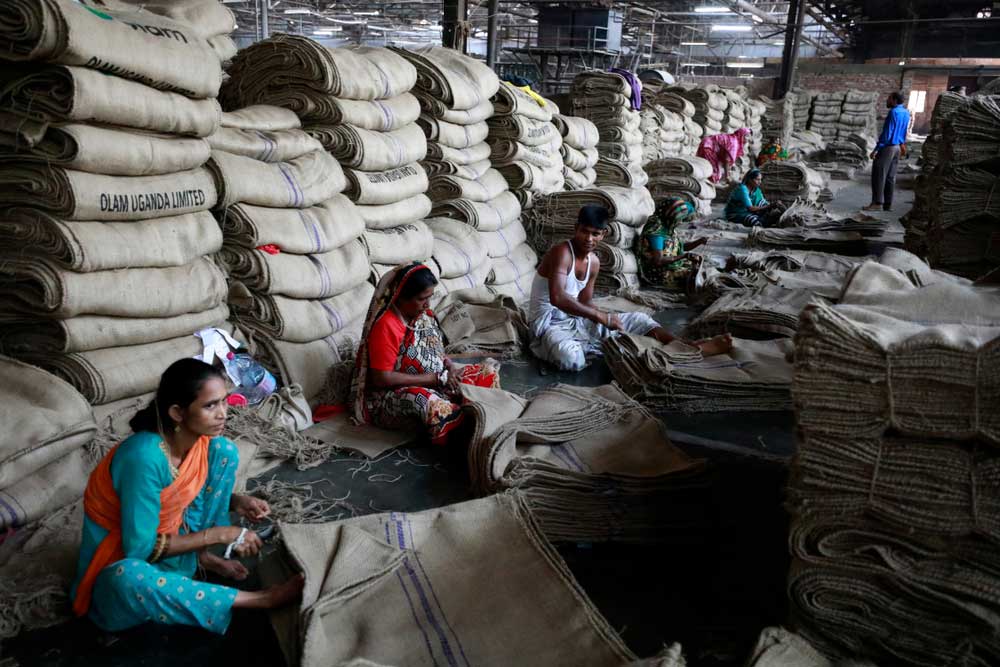The nation-wide lockdown has brought jute operations in Bengal to a complete standstill, threatening the livelihoods of 2 lakh workers even as the industry demanded exemption status as jute is an essential commodity. Bengal has 60 jute mills, which meet the demand of 90 per cent of jute goods in the country.
The mills have approached Bengal chief minister Mamata Banerjee for an exemption from the lockdown to meet the grain packaging requirements of the Food Corporation of India and other procuring agencies.
According to members of industry body Indian Jute Mills Association (Ijma), all the functioning mills have been directed to cease their manufacturing activities in the lockdown period by the district administration concerned.
But jute comes under Essential Commodities Act, 1955, and mills should remain open since the Union home ministry has specifically exempted industrial establishments involved in the manufacture of essential commodities through its March 24 directive.
According to Ijma, mills have to supply around 6.8 lakh bales of jute bags, and supply from mandis to the public distribution system will be disrupted, jeopardising the food supply chain.
Besides, plastic bag makers have got exemption, and jute mills should also get the facility.
Wage and labour
The industry does not foresee a major impact on the availability of labour force once production is resumed. “Around 60-70 per cent of the labourers stay within two kilometres of the mill. Traditionally, whenever workers leave for their home, they inform the management and often ask for advance. There are hardly such cases implying that the workers are present and waiting for the mills to open,” said a mill owner.
But the concern is unless the mills open and the pending bills are cleared, the payment of salary due on the seventh of the month would be a big challenge.
Ijma has estimated dues between Rs 400 crore and Rs 500 crore on a conservative basis on government order for the supply of bags.
“The union textile ministry and the state government has to come out with an effective solution. Or the industry would be in a dire situation,” said an Ijma member.
Seeds concern
Jute needs an estimated 6,000 tonnes of seeds for the sowing season so that the harvest remains unaffected and mills get timely supply of raw jute. “The first 15 days of April are crucial for the jute sector. Harvest has to be ensured so that raw jute is available,” said a mill owner. States such as Punjab, Haryana, Maharashtra have adequate demand for jute bags but if mills are unable to produce, they will not be able to supply.
Assurance
The industry has assured the state government that they will comply with the safety guidelines issued by the health and family welfare department.











